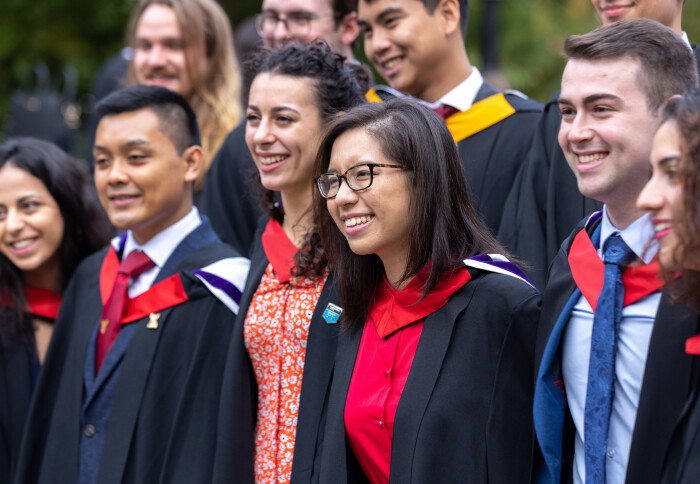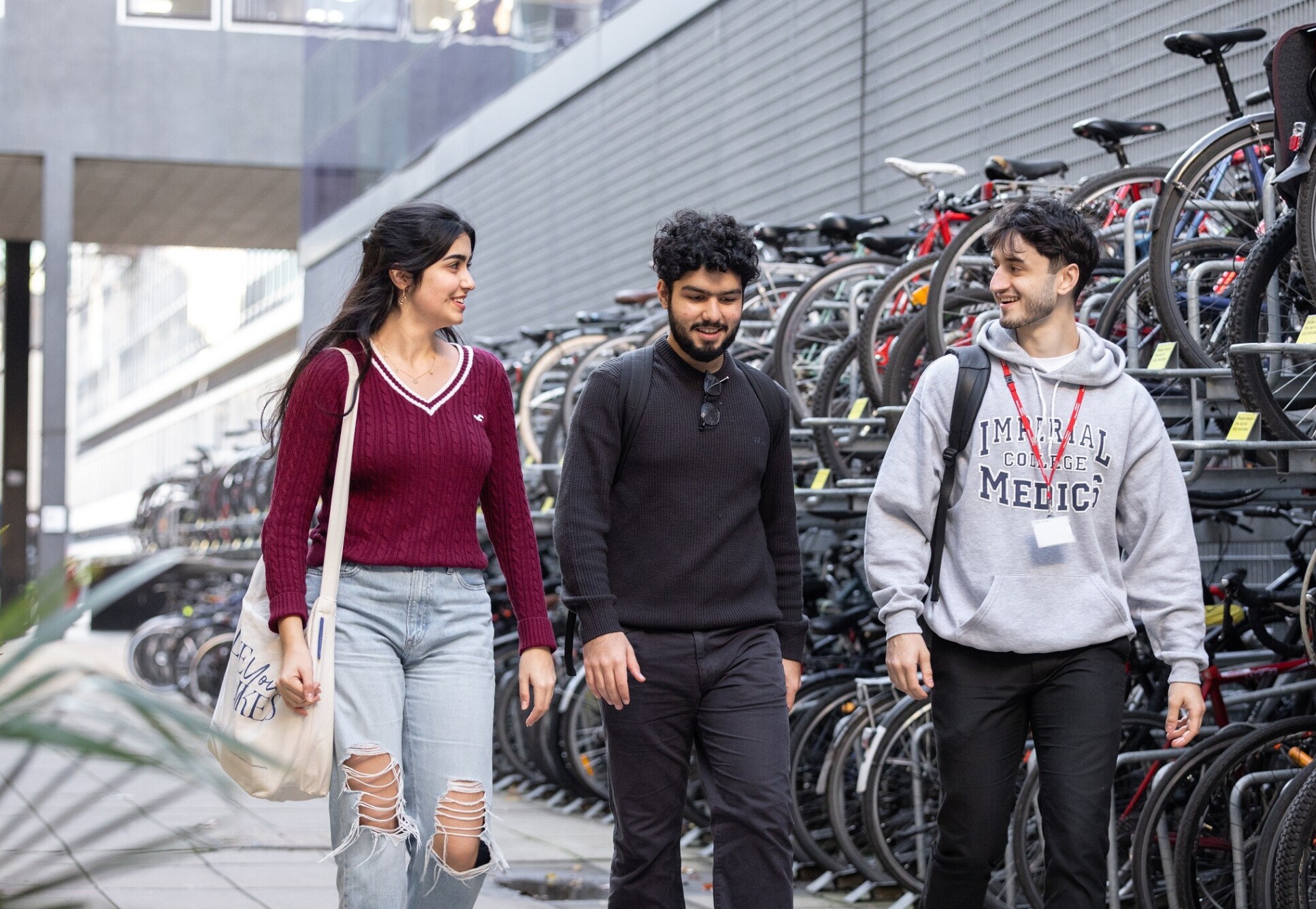School of Medicine celebrates successful NSS 2023 results

Medicine students celebrate their graduation at the Royal Albert Hall
The School of Medicine’s programmes topped the London tables in a range of themes in this year’s National Student Survey (NSS).
The Medicine (MBBS) programme placed first in six of the Survey’s seven themes across the London medical schools, as well as taking three theme top spots in the Russell Group table.
The BSc Medical Biosciences (BMB) programme is ranked third nationally for the survey’s new Freedom of Expression question, as well as first against all London-based schools, where it also took second place in three themes: Teaching on My Course, Academic Support and Learning Resources.
Improving assessment & feedback
The MBBS now ranks first in both the Russell Group and London medical school tables in the Assessment & Feedback theme, with nearly 80% of medical students reporting satisfaction in this notoriously challenging area – a 21% improvement on its 2022 result.
The figure also places the programme third nationally.

Head of Imperial College School of Medicine, Professor Amir Sam, said, “We are particularly pleased with our result in this area this year.
“Assessment and provision of meaningful feedback in medical education is widely acknowledged to be challenging, and is consistently a key area of focus for us. Developing and delivering quality assessments that support students to recognise and progress their skills and knowledge is a tough ask, but we are delighted that our students are reporting that we are on the right track.
“We facilitate collaboration between clinicians, scientists, administrators, assessment experts and digital innovators to make sure we can be at the forefront of quality assessment and feedback provision that supports and serves our students, as well as their future patients, best.”
The BMB programme saw a significant improvement in the Assessment & Feedback theme, with respondents reporting 68% satisfaction – up 25% on its 2022 result.
Continuing excellence
After its impressive improvement in 2022, the BMB programme has maintained its course of positive results.
Respondents reported high levels of satisfaction in key themes such as ‘Teaching on my course’ (87%), Academic Support (87%) and Learning Resources (92%, a 2% increase from 2022).

Professor Alison McGregor, Head of BSc Medical Biosciences, said, “We are really pleased with these results, despite the challenges the pandemic created for our students.
“It’s fantastic to see we are maintaining the quality of the programme for our students. Whilst we are always reviewing and developing our programme, opportunities and resources, I’m delighted that the team’s efforts are again being recognised.”
The MBBS programme also saw improvements in key themes, with a 5% increase on 2022 in both the Academic Support theme (up to 84%) and Organisation & Management theme, which has risen to 72% and places the programme first in the Russell Group table.
Professor Sam said, “We are also delighted to see the result in the Organisation & Management theme, which reflects the huge amount of work put in by our Faculty Education Office team and partner NHS providers, in particularly challenging circumstances for the NHS.”
Wellbeing and freedom of expression
For the first time, the Survey offered respondents questions about awareness of mental wellbeing support services and freedom of expression at their institutions.
79.4% of BMB students said information about mental wellbeing support services was communicated ‘well’ or ‘very well’, making these students the most satisfied in this area across comparable London-based programmes.
The BMB programme also topped the tables for London schools for freedom of expression, with 93% of respondents agreeing that they felt ‘free’ or ‘very free’ to express their ideas, opinions or beliefs during their degree.
Meanwhile, 89% of responding MBBS students said support information was communicated ‘well’ or ‘very well’, with 85% also feeling ‘free’ or ‘very free’ to express views, placing the programme fifth in the table nationally against other schools with an MBBS programme.
The MBBS programme saw a 4% increase on its 2022 result in the Student Voice theme, and ranks first both across the London schools and Russell Group institutions.

Trish Brown, Head of the School of Medicine Secretariat, the team leading on key areas of student experience and support, said “The provision of robust support services and strong communication of these go hand-in-hand, and we’re pleased that our students – especially cohorts affected so much by pandemic disruption – have felt supported by the services and resources available to them.
“We strive for a culture and community that is welcoming, open and accepting, and it’s really encouraging to see this reflected in students’ responses to this question, and that they have been free to speak their minds whilst with us in the School of Medicine.
“Student feedback is a key driver for changes we make across the School, and we actively foster conversations across our community to ensure a sense of belonging and engagement. Student voice is built into the foundation of our quality and governance work, and we are always looking for collaboration opportunities to embed student views and voices in changes across the School.
“Each of these areas is key to ensuring our students feel safe, well and happy so they can get the most out of their programmes and their time with the School overall. We will continue to work hard on our offering to give our students the best opportunity to succeed.”
Article text (excluding photos or graphics) © Imperial College London.
Photos and graphics subject to third party copyright used with permission or © Imperial College London.
Reporter
Dorrit Pollard-Davey
Faculty of Medicine Centre